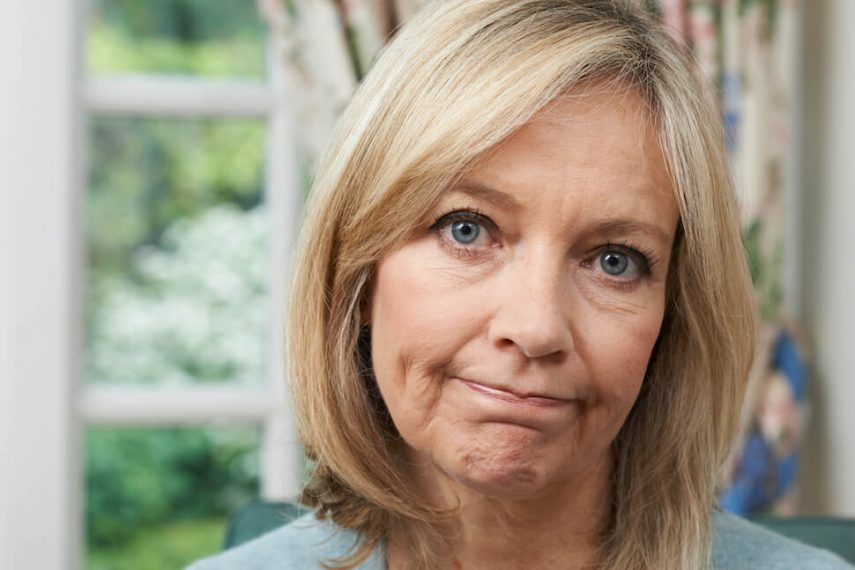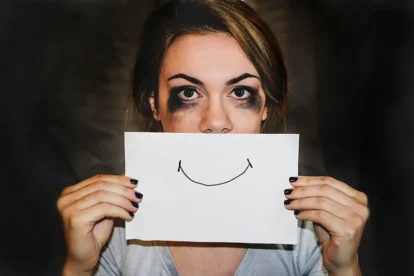I Fell Off the Wagon After My Husband’s Death: How I Struggled with Drinking After 20 Years of Sobriety

Addiction is a chronic illness, and like other chronic conditions, relapse is a reality. The relapse rate is between 40 percent and 60 percent for all substance use disorders. Even after decades of sobriety, it’s possible to relapse, although the risk generally goes down. Significant life changes or trauma can increase the chances of relapsing after a long period of sobriety. The loss of a partner or spouse may be a significant trigger. A relapse after many years, like any relapse, can be treated and managed to help get back to sobriety.
Drinking after decades of sobriety hit me hard. Over the years, I had forgotten how bad it could be, how bad it made me feel. After losing my husband of more than 15 years, I went through an emotional whirlwind like I hadn’t felt in a long time. I hadn’t even craved a drink in years, but the loss was so sudden and so hard that I fell into drinking faster than I thought possible. Drinking after long sobriety was a mistake for me. It didn’t heal my grief. In fact, it made things worse. Thankfully, treatment and support from family helped me turn it around again.
How Grief Led to Falling off the Wagon
I lost my husband to cancer. He received a diagnosis of stage IV pancreatic cancer and was gone two months later. The diagnosis was devastating because we knew immediately what it meant. Two months was not enough time to get used to the idea of losing him.
Watching him deteriorate only added to the pain and difficulty of the situation. He went from being a vibrant, active man who did triathlons to being unable to get out of bed without help. He became someone I didn’t know. I started grieving for him before he died.
I got sober just about a year before I started dating my husband. I had partied too hard in college and then carried that into my 20s, hitting rock bottom with a DUI. When I met him, I was in a fragile state of sobriety. His patience and acceptance helped me in those early years.
Not only did I love my husband, but I had come to depend on him for so much, from keeping the bills paid on time to easing my natural anxiety. When I lost him, I felt truly lost. All I wanted to do was have a drink.
The Lies I Told to Justify Drinking Again
After my husband’s death, I decided to start drinking again. It wasn’t a big binge right away. I didn’t drown my grief in a bottle of vodka, at least not initially. It wasn’t a sudden loss of control. It was a conscious choice.
The process of falling off the wagon developed slowly for me. I started with a glass of wine after dinner and another before bed, just to take the edge off my sadness. It spiraled, of course, until my habits were as destructive as they had ever been.
To help others understand, and as a warning to those in a similar situation, these are the lies I told, both to myself and others:
“I’ve been through a lot, so I deserve this.”
Alcohol shouldn’t be a reward, of course. My suffering with grief and loss didn’t make it okay to drink and get drunk. What I deserved after the loss of my husband was better self-care and the support of my loved ones.
I deserved time with friends and family, healthy meals brought over by my neighbors, a long, stress-relieving morning run, and patience with myself. I deserved professional support and therapy with a trained counselor. I deserved better than to escape through alcohol.
“My husband is gone. It no longer matters if I drink too much sometimes.”
This was a tough one to overcome. Without my husband, who was my best friend and often the reason I pushed myself through difficult times, what did it matter anymore? I felt like I could deteriorate and no one would care. I felt that I was not worth better choices. Only the me that existed with my husband deserved it.
The truth is that I am enough on my own. Without anyone else, it matters if I spiral into alcoholism again, feeling sick every morning, losing my job, and wallowing in sorrow and self-pity. First, though, I had to think of others. I had to consider how my parents, my siblings, my friends, and my pets would feel if my drinking caused me harm again.
“Moderate drinking is a valid coping mechanism.”
This is a lie I used often during my drinking days. If I had a bad day at work, if my cat was sick, if someone looked at me wrong in the grocery store, I needed a drink to relax and cope. The instant release of that first drink is powerful, and it tricks me into thinking that alcohol is the answer.
Even for someone who has never struggled with alcohol use disorder, drinking is not a healthy coping strategy. That short-term sense of relief can lead to more drinks, regrets, and a hangover. And then you just feel worse about what you were trying to cope with in the first place.
There are several proven reasons why alcohol simply doesn’t work as a coping mechanism for stress and other bad feelings: Instead of providing a distraction, drinking can cause you to ruminate, which makes the situation worse; drinking exacerbates mental health issues like depression and anxiety; alcohol is a depressant; and alcohol is bad for physical health, suppressing the immune system and worsening sleep.
“It’s been decades; I can drink in moderation now.”
This was the biggest mistake I made. It was the lie I didn’t realize I was telling myself. I believed it. The lie I told myself was that, after so many years off alcohol, I could use it as a safe, occasional coping mechanism.
Maybe it would be fine to drink moderately once or twice a week as I coped with this major loss, but that’s not how it turned out. I started out slowly enough, but within a few weeks I was drinking as much as ever. I went from two glasses of wine a night to one bottle, to two bottles of wine, followed by straight vodka.
Some people can drink in moderation. Some people with an alcohol use disorder who have gone through treatment and maintained sobriety for a period of time can drink in moderation. Trying it, especially after 20 years, was a risk. A big risk. It didn’t work out for me.
We're Here to Help. Call Today!
866-922-1350Returning to Sobriety and Good Mental Health
The one thing I told myself about drinking that was true but not necessarily a good excuse was that I could just get sober again if necessary. That’s exactly what I did, but I should have avoided the necessity of returning to rehab.
Regrets, however, are not very helpful when recovering from alcohol use disorder. I went to a rehab facility for a couple of months where I not only resumed sobriety but also processed my loss in a healthy way.
The therapists and other staff were so helpful in guiding me through grief. They focused my treatment plan on managing and coping with loss while also addressing my drinking. It was like having co-occurring disorders, both of which needed to be handled at once. If I didn’t deal with both of them, the ignored issue would only come back.
One of the best things I learned in this second time in rehab involved healthy coping. I accepted the fact of my loss and that I would never truly get over my husband being gone. But I also learned and practiced the healthy ways of dealing with it. I started meditating, focused on healthy eating and getting exercise, and made a lot of important social connections.
Once out of rehab, I decided to continue outpatient therapy. It has been so helpful in managing life without my husband. My sessions have also helped me immensely when it comes to resisting the urge to drink again. Today, I still have a hole in my heart where he used to be, but I’m healthier, content, and ready to face the future with positivity.






